Since 1913, there have been over 20 film versions and variants of Macbeth, and this isn’t counting TV productions, crude one-reel condensations from 1908 through 1911, nor does it factor in Basil Rathbone reciting a large chunk of Macbeth’s lines in The Comedy of Terrors (1963). Despite the theatrical superstition about “The Scottish Play” (code for Macbeth, since, like Voldemort, the name should not be uttered), the movies seem pretty fearless about bringing him up — and in some cases doing some strange things with him (or even to him). It’s not hard to see why. The dark story is fascinating and Mr. Shakespeare’s lines are endlessly quotable. (I mean this is a play where people even quote the stage directions — “Thunder and lightning. Enter three witches.”)
For me, the gold standard of cinematic versions of Macbeth are Orson Welles’ 1948 film and Roman Polanski’s take from 1971 — two markedly different efforts. Just as different, though not in their league, is this new film from “visionary director” Justin Kurzel. I’m not quite sure how he got tagged with that tricky accolade, since Macbeth is only his second feature film. His first, The Snowtown Murders (2011) — a fact-based, excessively unpleasant story about redneck Aussie homophobes systematically murdering anyone they think is a pedophile — is pretty much of a piece with his Macbeth, which I guess means that Kurzel’s vision is three-fold: Bleak, bleaker, bleakest. Granted, it’s a vision that fits the material in both cases, but that doesn’t keep it from being wearing in massive doses.
Where Welles made a stylized, theatrical, somewhat eccentric Macbeth, and Polanski made a visceral, violent, bloody one that reflected the times (the world’s, the cinema’s, and the director’s own), Kurzel has crafted Macbeth as a kind of nightmare funeral dirge. (The droning musical score by his brother, Jed Kurzel, complements this sense.) His Macbeth takes place in a desolate, brutish world — a forbidding, chilly place that is often colorless (or bathed in red and orange) and dark. It is grim and gritty, and so are the characters. You know that moment in Monty Python and the Holy Grail (1975) where one character discerns a king because, “He hasn’t got shit all over him”? Well, that wouldn’t work in this case. Everyone is pretty much in a bemerded state here. (There are actors in this movie so covered in filth and crepe hair that they’re unrecognizable.) The question that arises from all this is whether or not this is a viable approach to the material. My answer is a slightly guarded yes. I cannot argue that the almost relentless ugliness doesn’t suit the material. What it does to the poetry of the work may be another matter.
Despite the way the trailers make the film look, this is not some kind MacBraveheart affair. Yes, there is action, but it does not swamp the film. In fact, a lot of the action — and the violence — is underplayed. Some of the grislier moments — notably Macbeth burning a mother and her children at the stake — take place offscreen, and may be all the more disturbing for it. The film certainly doesn’t shy away from its horrors, but neither does it wallow in the mechanics of them. For that matter, Kurzel’s film — for all its grimness — has a few moments of striking visual grandeur, some of which is on a par with John Boorman’s Excalibur (1981).
Where this Macbeth tends to falter lies in characterization and performances — or perhaps in the way the performances are directed, especially Michael Fassbender’s Macbeth. Physically, he is an imposing figure — maybe even too much so for a character so easily controlled by a prophecy and a power-hungry wife — but his halting line delivery is distracting and sometimes doesn’t work at all. The long, long pauses between words add little to his speeches and rob any sense of cadence. Marion Cotillard’s Lady Macbeth is on surer ground, and she does pull off the “sleepwalking” scene, despite it being rethought so that it involves neither sleeping nor walking. But what Kurzel’s film mostly affords us is a Macbeth where the visuals outweigh the words. Ideally, they should enhance the words, but here they tend to overtake them, and while this may make for interesting — even vital — filmmaking, I don’t think it’s the best approach to Shakespeare. Rated R for strong violence and brief sexuality.



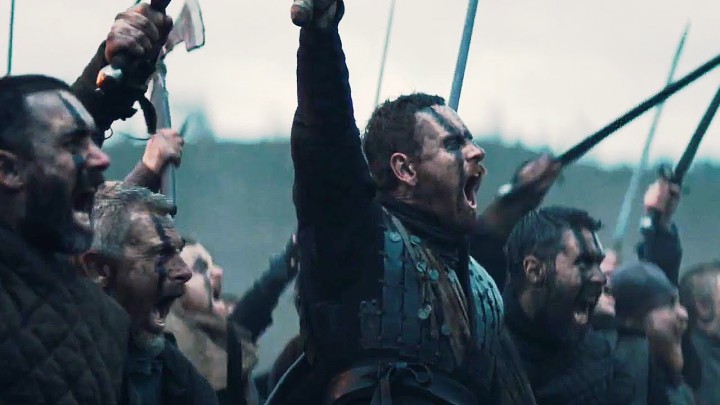
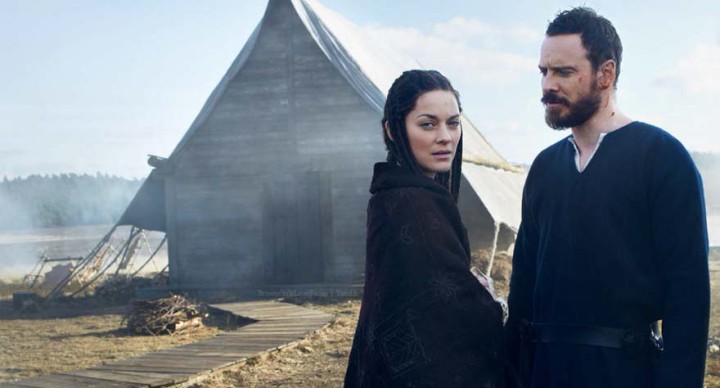
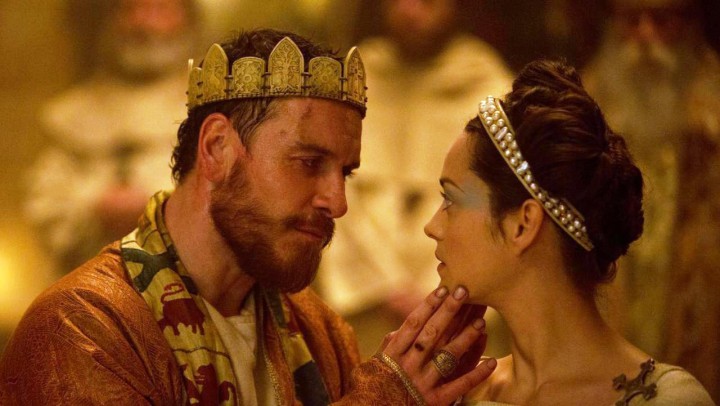
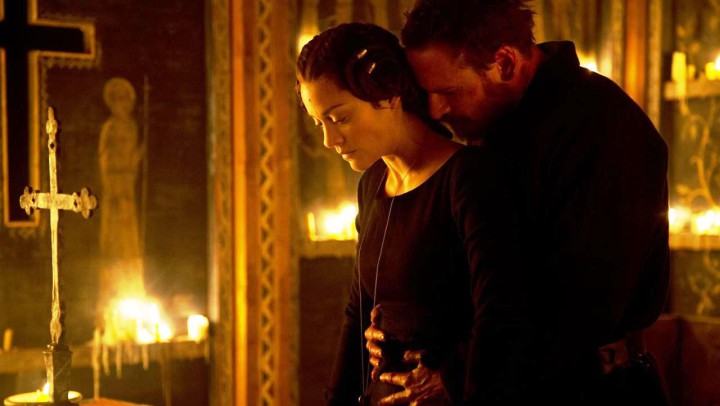
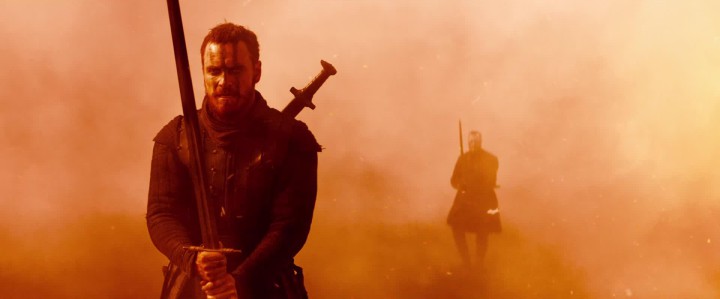
This actually did surprisingly well, but it has fallen prey to the Star Wars juggernaut.
Right on, Mr. Hanke. You nailed this one, methinks. I taught the play about 25 times and at times couldn’t understand the language being spoken. Ironically, this may have partly been because of the fact that the writer/director wanted us to know that this play was really, really, really set in Scotland. Scot English can be rough to decipher and this was maddeningly so. I think Wells got it about right; he articulated the English of Shakespeare with an accent which didn’t get in the way of understanding the lines. As Hamlet famously said, “The play’s the thing. . .” so one should always make a priority of enunciating the words of Shakespeare, which are always “the thing”.
I’m not sure that Macduff’s children were publically burned. I thought that they had been “put to the sword”. Will have to check.
I thought the “Tomorrow and tomorrow. . .” scene was bizarre. The words are at least a quasi-soliloquy, meant to be addressed to us, meant to pull us in, to be allegorical. This wailing the words into dead Lady Mac’s nightshirt was an affectation, pure silliness, laughable.
The last scene, with Fleance running off into the mist, was a magical touch, I thought.